#witching philosophy
Text
That was the thing about witches. They were, according to Granny Weatherwax, "people what looks up." She didn't explain. She seldom explained. She didn't mean people who looked at the sky; everyone did that. She probably meant that they looked up above the everyday chores and wondered, "What's all this about? How does it work? What should I do? What am I for?" And possibly even: "Is there anything worn under the kilt?"
Terry Pratchett, Wintersmith
#granny weatherwax#esme weatherwax#tiffany aching#wintersmith#discworld#terry pratchett#witches#people#kilts#psychology#perspective#reflection#introspection#philosophy#explanations#people what looks up#the thing about witches
586 notes
·
View notes
Text

#life and death customs#witchcraft#witch#witch aesthetic#carl jung#heaven#hell#occultism#occultist#occult#halloween#wicca#wiccan#esoteric#dark asthetic#wisdom#philosophy#philosophical#witchery#dark quotes#old books#spiritual#quotes#motivational#motivating#crystals#magical#magic#magick#satanic
505 notes
·
View notes
Text
Do you know why I don't do reversal spells? Why I don't talk about them, or advocate for them as a form of magic?
You cannot reverse a spell.
You can stop a spell. Hell, you can stop a spell before it actually does anything. You can mitigate the damage. You can nullify it. You can completely stop it from doing anything. You can catch it, turn it back around towards the person who sent it.
You cannot reverse it. You cannot uncast a spell. It doesn't matter even if it's your spell: once it has been cast, it has been cast. The magic occurred, and you cannot go back in time and stop it from occurring. However long, whatever the result, someone still put that spell out into the world and you cannot go back in time and unring that bell. You can't change the intentions of that moment. You cannot unspeak those words. You can extinguish a candle; you cannot unlight it. And like a candle that has been lit, there will always be signs.
People try so hard, so desperately hard, to undo what was done and you just can't. And while you're sitting there exercising the futility of trying to reverse the magic, you lose valuable time in which you have agency. Agency to act, to mitigate, to improve, to maybe even fix. If you throw a ball through a window, don't waste your time trying to unthrow the ball; begin the process of getting the window fixed.
And, in case it isn't clear, I'm only partially talking about magic.
346 notes
·
View notes
Text

"What an astonishing thing a book is. It’s a flat object made from a tree with flexible parts on which are imprinted lots of funny dark squiggles. But one glance at it and you’re inside the mind of another person, maybe somebody dead for thousands of years. Across the millennia, an author is speaking clearly and silently inside your head, directly to you.
Writing is perhaps the greatest of human inventions, binding together people who never knew each other, citizens of distant epochs. Books break the shackles of time. A book is proof that humans are capable of working magic.”
- Carl Sagan, excerpt from the 11th epsidode of Cosmos ("The Persistence of Memory")
#carl sagan#science#magic#witchcraft#writing#language#philosophy#books#soup#dank memage#cookbook#grimoire#grammar#recipe#witch#witchy#cauldron#quote#quotes#book#witchyaf#witchy af
2K notes
·
View notes
Text

“The discovery of truth is prevented more effectively, not by the false appearance things present and which mislead into error, not directly by weakness of the reasoning powers, but by preconceived opinion, by prejudice.”
-Arthur Schopenhauer
#arthur schopenhauer#original photography on tumblr#philosophy#art#dark art#dark aesthetic#eclectic ways#skyporn#night photography#witchy vibes#truth#stop prejudice#just facts#realism#pessimism#curators on tumblr#spoonie witch#spoonie warrior#spoonie artist#dreamcore#witchyvibes#spiritual growth
115 notes
·
View notes
Text
Energy Explained in Other Systems
There is a lack of measurable evidence because any person that has worked with energies have had different experiences but were able to understand and manipulate energies according to their own will.
Energy has been used in many ways within culture and religion and have set beliefs depending on the system being practiced.
Next, are some given definitions defining energies within diverse philosophies.
Hindu = Prana
Chinese = Qi /Chi
Japanese =Ki
Greek = Pneuma
Hawaiian = Mana
Tibetan Buddhism = Lung
Hindu Philosophy
A Sanskrit word for "life force" or "vital principle" is often referred to as Prana. It is described as first coming down from the Sun and connecting all elements of the Universe. It has been invoked within the Hindu scriptures of the Vedas and Upanishads.
Prana is the belief of vitality surrounding all living beings. This energy is responsible for all bodily functions. There are five types of pranas, collectively known as the five vāyus.
1. Prāṇa: Beating of the heart and breathing. Prana enters the body through the breath and is sent to every cell through the circulatory system.
2. Apāna: Elimination of waste products from the body through the lungs and excretory systems.
3.Uḍāna: Sound production through the vocal apparatus. It represents the conscious energy required to produce the vocal sounds corresponding to the intent.
4. Samāna: Food digestions, repair or manufacture of new cells and growth, and heat regulations throughout the body.
5. Vyāna: The energy that is needed for the body to have proper circulation, and the functions for the voluntary muscular system in which there is expansion and contraction processes throughout the body.
Chinese Philosophy
The earliest texts in which Qi or Chi is described was in 'Analects of Confucius' where it could mean "breath" and was combined with the Chinese word for blood.
Xue-qi, "blood and breath."
Living beings are born because of an accumulation of qi, and as the beings live out their lives the qi declines eventually resulting in death. This indicates that xue-qi referred to all living things, but it is believed that qi or chi exists within all things tangible.
For example, the wind is the qi or chi to the Earth, and the cosmic concepts of yin and yang are "the greatest of qi"
Yin and Yang which means "bright-dark," and "positive-negative" are the opposing forces needed in order to complement the concept of balance. There are thoughts that this duality symbolizes contradicting energy forces which manifest as light and dark, fire and water, expansion, and contraction. With this said, Chinese medicine states that the balance of negative and positive forms in the body are believed to be essential for overall satisfactory health.
Japanese Mythology
During the sixth and seventh centuries the Chinese word qi (or chi) was written using the same kanji script for their interpretation for energy being "Ki"
However, the meanings are a tad different.
While the Chinese use chi or qi to describe that energy exists in all things, animate and inanimate objects, the Japanese believe it is the creative flow and expressions used within our daily lives, martial arts, and symbolizes aspects of nature, and thusly the spirits. It is the transfer from living, animate beings in to inanimate which can change and manifest into various forms. It is the necessary intentions one wields.
Greek Mythology
Pneuma, "The breath of life" or "vital spirit" is composed of kinetic energies within the vessel, while Ignis is composed of thermal energies. All human beings need both kinetic and thermal energies in order to properly function.
In Greek medicine, pneuma is the form of circulation throughout the body's vital organs. Due to this the role, pneuma plays within the body to sustain consciousness. Some physiological theories suggest that the pneuma mediates between the heart, and the heart is regarded as the seat of the mind, and the brain.
In similar, Stoic philosophy, pneuma is the active and generative principles that are organized between the individual and the cosmos. The highest forms are the Gods, and the human soul. The human soul is believed to be fragments of the gods given life force in order to be born and given a vessel upon the physical plane. This exists within all animate and inanimate objects as energy transfers and changes.
Hawaiian Mythology
Mana, the spiritual energy of power and strength. This energy exists within places and people; however, it is said that mana is both external and internal concepts.
The Hawaiian people believe that individuals can gain mana or lose it depending on one's actions in everything that they do.
In mythology there were two ways to gain mana, and this was either done sexually or through violence.
To sexually gain mana one must invoke the god, Lono, deity of peace and fertility.
To gain mana through violence one must invoke the god Ku, deity of war and politics.
Tibetan Buddhism
Lung means the wind or breath. Exists as a key concept in Vajrayana traditions. Generally, it's concept relates to the understanding of the subtle body, and Three Vajras. Those three are the body, speech, and mind. Lung relates to the subtle flow of energy and the five elements. (Fire, Water, Earth, Space, and Air) Lung is mostly closely connected to the Air Element.
Lung has also been used to describe the winds or prana being used in conjunction with the subtle body during a time of exercise, but also more importantly everyday functions of the body and its own senses. There are five psychic winds which manifest into mahabhuta. These five relate to the lifeforce that animate the body-mind (namarupa) of all sentient beings.
The Five Root or Major Winds
The root winds support an element and is responsible for a function of the human body.
The 'life-supporting wind' (Tib. སྲོག་འཛིན་རླུང་, sok dzin lung; Wyl. srog 'dzin rlung).
Located in the brain, this lung regulates functions such as swallowing, inhalation, and concentration.
The 'upward-moving wind' (Tib. གྱེན་རྒྱུ་རླུང་, gyengyu lung; Wyl. gyen rgyu rlung).
Located in the chest and thorax, this lung regulates, among other things, speech, the body's energy and vitality, memory, mental endeavour and diligence.
The 'all-pervading wind' (Tib. ཁྱབ་བྱེད་རླུང་, khyap ché lung; Wyl. khyab byed rlung). Residing in the heart, this lung controls all the motor activities of the body.
The 'fire-accompanying wind' (Tib. མེ་མཉམ་གནས་རླུང་, me nyam né lung; Wyl. me mnyam gnas rlung). Found in the stomach and abdomen area, the fire-accompanying wind regulates digestion and metabolism.
The 'downward-clearing wind' (Tib. ཐུར་སེལ་རླུང་, thursel lung; Wyl. thur sel rlung). Located in the rectum, bowels and perineal region, this lung's function is to expel faeces, urine, semen, and menstrual blood. It also regulates uterine contractions during labour.
The Five Branch Winds
The five branch winds enable the senses to operate.
The naga wind (Tib.ཀླུའི་རླུང་, lu'i lung; Wyl. klu'i rlung). This lung connects with the eyes and sight.
The tortoise wind (Tib. རུ་སྦལ་གྱི་་རླུང་, rubal gyi lung; Wyl. ru sbal gyi rlung). This wind connects with the heart and the sense of hearing.
The lizard wind (Tib.རྩངས་པའི་རླུང་, tsangpé lung; Wyl. rtsangs pa'i rlung) associated with the nose and the sense of smell.
The devadatta wind (Tib.ལྷས་བྱིན་གྱི་རླུང་, lhéjin gyi lung; Wyl. lhas byin gyi rlung) related to the sense of taste.
The 'king of wealth deities' wind (Tib. ནོར་ལྷ་རྒྱལ་གྱི་རླུང་, nor lha gyal gyi lung; Wyl. nor lha rgyal gyi rlung). This wind connects with the body and the sense of touch.
#energy work#pagan#witch#witch community#pagan witch#witchblr#witchcraft#beginner witch#baby witch#witch tips#energy manipulation#philosophy#theology#greek mythology#hindu mythology#buddhism#hawaii mythology#chinese mythology#japanese mythology#metaphyics#metaphysical#spiritualism#spirituality
333 notes
·
View notes
Text
TheVirginWitch's Digital Occult Library is Now Available!
If you're looking to expand your personal library, looking for a specific text, or just want to browse, feel free to check it out!
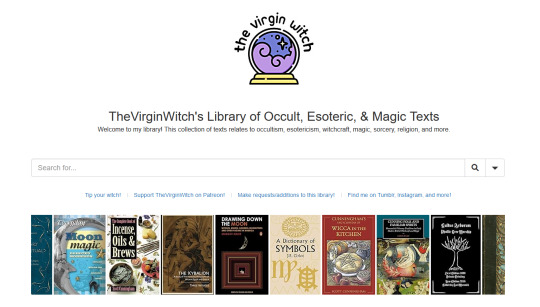
As of now, there's just under 100 titles in my library. It's not 100% complete yet, but I do plan on adding more texts as time goes on (I've got about 250 more books to add, just from my personal files!) If you have any particular books that you'd like to request, feel free to fill out this form!
Additionally, if you like what I do and want to show your support/help me quit my day-job so I can pursue witchy-content-creation full-time, please check out my Patreon for as little as $2/month!
#witchcraft#thevirginwitch#witch#witchblr#witches of tumblr#beginner witch#reading materials#occult#occultism#occult philosophy
156 notes
·
View notes
Text

#reincarnation#art#life#spiritual#witches of tumblr#beautiful#philosophy#dreamy#love#witchblr#spirit#galaxy
255 notes
·
View notes
Text

#not mine#art#willow tree#willow#weeping willow#trees#ogham#tree magick#green witchcraft#green witch#earthcore#naturecore#audreyposting#fairycore#goblincore#earth#reference#dec23#nature#philosophy#salix#quote#adventurecore
111 notes
·
View notes
Text
You know, I'm not sure it's recommended, but I really do enjoy running my business/social media (especially Tumblr) with the general attitude of a Monty Python Frenchman anytime a hater appears :3
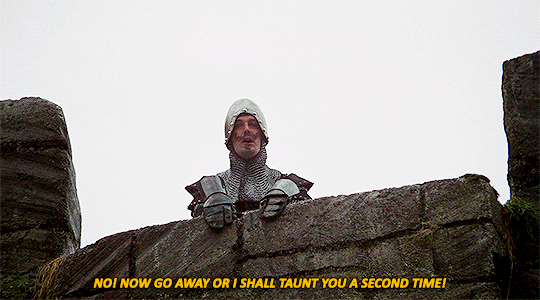
201 notes
·
View notes
Text
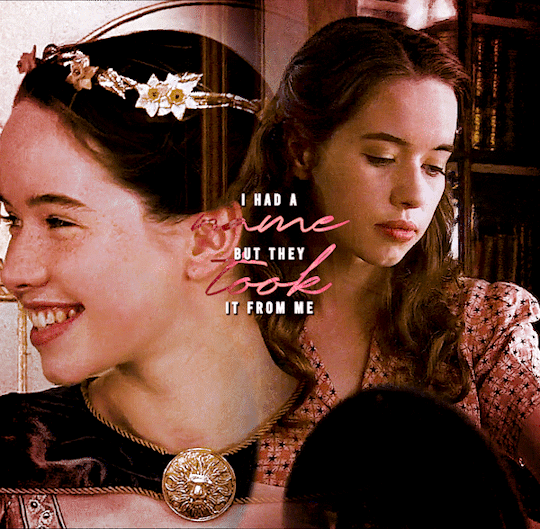
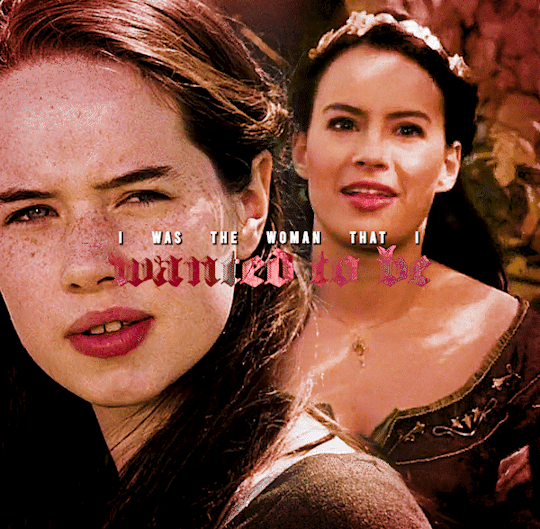






The fair and the brave and the good must die
I seen the other side of living, I know heaven's a lie
I’ll tear through the night, and I'll raise some hell
Cause I'm the World Ender, baby and I'm back from the dead
— the world ender, lord huron | insp.
#THE WHITE WITCH AIN'T GOT NOTHING ON QUEEN SUSAN#i am so glad that we have an actual shot of aslan dying#also 'the fair and the brave and the good must die' is not susan's new philosophy it's what she's realized are the rules of the universe#it also aligns pretty perfectly with the fair being edmund the brave being peter and the good being lucy#this entire gifset is just... aslan's actions being so horrible that it makes the gentle snap and turn brutal#narnia#the chronicles of narnia#tcon#susan#susan pevensie#gifs#narniaedit#thechroniclesofnarniaedit#tconedit#susanedit#susanpevensieedit#anti aslan#narnianetwork#perioddramaedit#perioddramasource#fantasyedit#disneyedit#disneygifsdaily#femaledaily#usermoh#userwxwood#anna popplewell#the lion the witch and the wardrobe#prince caspian#voyage of the dawn treader
821 notes
·
View notes
Text
Do you see the gods as having genders? Like, most of the gods we interact with are gendered by human culture, but as beings that don't have mortal bodies, and that are likely much older then any human cultural ideas about gender, I don't think it makes sense for them to really be gendered. Because the gods are intelligent beings with individual identities it's very human to gender them, but as an agender being myself I don't think it holds up to see them as having gender identities that aren't assigned to them by worshipers.
(This is mostly a poll for people who actually see the gods a real entities with actual thoughts and feelings.)
#196#my thougts#polls#paganism#pagan#paganblr#hellenic pagan#norse paganism#norse heathen#heathen#celtic paganism#pagan witch#norse polytheism#polytheist#hellenic polytheism#theology#religion#theological#philosophy#gender#queer#agender#non binary#enby
82 notes
·
View notes
Text
“Philosophical and Personal Musings on the Wizard Stone and the Axiom of Proliferation” – An Essay and Divinations for Arc 3 of “The Wizard, the Witch, and the Wild One”
From the Desk of The Bard Bullseye
Happy Birthday, Worlds Beyond Number!
Spoilers abound! This is an essay discussing the actual-play podcast “The Wizard, the Witch, and the Wild One” from the fine folks at @worldsbeyondpod It is an expression of my analysis of and engagement with the content of the second arc of the show and also contains some speculation about future plot and current themes. These interpretations are my own, include some reflections on my personal philosophy, and are written in a mostly academic style of writing (be warned, it’s around 3,000 words!). If you do read through it, I hope you find my points interesting and thought-provoking regardless of whether or not any of it turns out to be true (and I have done my level best to adhere to the facts of the story thus far, with transcript pages and timestamps cited when available/applicable).
Abstract (TL;DR, or I ain’t reading all that, but I’m happy for you):
The Wizard Stone’s discovery that the Axiom of Proliferation is untrue has major implications for the overarching story and the direction of the next arc. Herein, I explore my reaction to this moment in Episode 19 and how my experience and own philosophy potentially align with Stone’s. Then, I examine the logic of her argument and its implications for the greater worldbuilding in Umora. Specifically, there is a fundamental problem with the way that wizards are using the lingua arcana that is affecting the link between the Spirit and the Mortal worlds (i.e., the “greater binding”), and this is leading to detrimental effects. This, I believe is ultimately what Grandmother Wren (and now Ame) and Coven of Elders (and possibly the Man in Black?) are concerned with, though they have come to vastly different conclusions about who is at fault and how to solve this problem, which are yet to be revealed in the forthcoming third arc (see footnote 5).
Introduction
Something has piqued my interest and scratched a deep philosophical itch for me in the second arc of “The Wizard, the Witch, and the Wild One.” While the first arc introduced the characters, explored ideas of ‘quest fever,’ and masterfully wove in lore and character motivations for reclaiming Eursulon’s sword, Wavebreaker, the second arc has expanded upon the characters and their relationship to the greater philosophy of the Citadel and Umora.
I don’t usually speculate where stories might go next or craft my own fan theories. Especially for ongoing projects (i.e. TV shows, actual plays, books in a series, etc.), I tend to be along for the ride, and I spend time analyzing the story being told and the characters within. And rarely do I put these thoughts to paper, at least not coherently; I am more likely to ramble endlessly to a friend or lurk on Discord for others’ opinions, chiming in occasionally. However, I have noticed some things brewing in this arc that I wish to discuss at-length and even speculate upon: my perspective and analysis of the philosophy of the Wizard Stone, and the possible implications for the forthcoming third arc.
I don’t often see myself in stories. Not to say that I don’t see myself or parts of myself represented in media: i.e. demographically, socially, politically, etc., but rarely do I find a specific character or character motivation that ‘snipes through the duplex door’ where I go “oh shit that’s me” or “I relate to this on a deeper level.” This happened to me in Episode 19, when Suvi is investigating the records of her mother’s early time in the Citadel: her expulsion from the College of Divination and readmittance to the College of Abjuration because she had accused one of her professors of “treason against magic itself.”
Upon her dismissal from the Citadel, Stone wrote a dissenting missive to the Archmagi of the Citadel regarding one of the three metaphysical axioms, the Axiom of Proliferation, and how this particular axiom “does not describe any actual truth of the lingua arcana, nor does it more broadly describe any facet of the greater binding” (Ep. 19, transcript p. 12). She goes on to posit that not only is it “pure intellectual technology,” but that its continued acceptance as fact is a “danger to the future of wizardry” and “[a] stain on the face of magic itself” (Ep. 19, p. 12). An axiom in this context is described as “simple… laws that are given to young wizards about broad truths of spell casting in general… that are true across spells [and], … different schools of magic” (Ep. 19, p. 13). That is, “the Axiom of Proliferation is essentially that the more times a spell is written down … the weaker the spell becomes” (Ep. 19, p. 13).
An axiom as defined in philosophy is a statement that is self-evidently true and serves as a starting point for reasoning. Therefore, any argument against its truth would call into greater question the philosophical foundation of the Citadel itself. If Stone’s claim that this was not a true axiom had not been dismissed swiftly and discredited, it is possible (though highly unlikely, given the power of empire) that this would have led to a redefinition of the philosophy of wizardry in Umora.
This is what struck me like a bolt of lighting while listening to this episode. I did almost this exact thing when I was in grad school!
Stone is… me? Faulty logic and its effects
As part of my master’s degree, I took a philosophy seminar on bioethics, which covered some polarizing subjects and more fringe points of view. Most of these topics cannot be directly studied or supported by scientific evidence, so the conversation and academic debate is largely conceptual or theoretical (i.e., conducting research to investigate these ideas have varying states of legality and moral acceptability) (see footnote 1). This course was excellent and a bit out of my comfort zone, but it challenged me to think critically about fundamental logic and accepted ideas that often go unexamined until they are taken to the extreme. At one point in the semester, we were discussing a particular topic and the current state of debate surrounding it. Immediately, I was perplexed by some of arguments made to justify it, and at first, I didn’t have the language to express why. Much like Stone, I found myself screaming (internally) “you’re all idiots!” or “you’re missing the point/the bigger picture!” or “that’s not how that works!” Essentially, I had arrived at the conclusion that if this idea were to be implemented broadly in society, it would likely have major negative ramifications, and furthermore, not even achieve the desired and purported effect that they were arguing for!
Eventually, I figured out what the underlying problem was: a logical fallacy inherent and unidentified within the current debate. Since scholars had just accepted the argument at face value and moved on, most of the debate was concerned with its future implementation or theoretical follow-on effects on individuals and society at large. I did find some existing papers that danced around the idea of fallacious reasoning (i.e., that the theoretical benefits were greatly exaggerated, if not a zero-sum game, or that the negative long-term effects may outweigh the short-term benefits), but none named it specifically or even examined the logical argument the entire debate was predicated on. So, for my term paper, I researched and wrote about this fallacy, and in it, I discussed how the discovery and acknowledgment of it would reframe the debate and perhaps even bring about reform to existing systems!
In the process of writing and researching, I felt incredibly isolated intellectually (this was also peak-COVID so that didn’t help either). Now that I had put the pieces together, it seemed quite obvious to me, but it was difficult to find supporting evidence or other similar arguments to mine (even if they weren’t breaking the logic down so specifically). Was this thing I had reasoned actually true? Why had no one pointed this out before? What if I’m wrong? What if they’re right and I’m a fool for daring to challenge them? What does my professor think? They’re an expert and approved the topic, so I know I’m not entirely off-base, but do they agree with me? I knew that if I wrote a strong, supported, and persuasive argument, that I couldn’t fail, but I deeply cared whether or not I was actually right. It was also probably one of the first times that I wrote with passion (and specific planning ahead of time!), rather than churning out yet another good-enough research paper (that I may or may not have written days ahead of the deadline or the night before).
Thankfully, unlike Stone, my fears that I would not be taken seriously, or worse, told that I was flat out wrong (and be silenced) did not come to pass—my professor agreed wholeheartedly with my argument that this fallacy is pervasive in the current literature. (Though I feel must disclaim that I still could be wrong in some other aspect of my argument, and that simply arguing the existence of a fallacy can be treacherous! In philosophy, no one ever has the only or complete answer—if they claim to, they are either lying or ignorant.) As part of the course, we did a mock peer review in class and my professor sent us further feedback on our papers after we submitted our initial draft of the term paper.
One particular piece of feedback stands out to me upon reflection and comparison to Stone’s experience and the philosophy of wizardry. It said something along the lines of ‘We think that is a very admirable and unique take on this subject. No one found any fault in your logic; however, it is important to consider the practical implications of identifying this fallacy.’ Point taken, of course, that the mere identification of a flaw in logic is not the end of the conversation—it is merely the start of a new discussion and opportunity to surface new arguments.
In my case, the identification of the fallacy was the concrete thing I felt I could verifiably yell about (academically) to explain why I disagreed so vehemently with current literature (and some truly wild propositions made by certain scholars). Of course, one should not commit the ‘fallacy fallacy,’ which is that simply pointing out a fallacy invalidates the argument. Instead, it was a means to discuss practical implications: some less harmful methods, some overlooked existing solutions, and to pull knowledge from other related disciplines that had not yet been considered because this fallacy had yet to be identified (see footnote 2).
The philosophy of Stone’s accusation of ‘treason’ and treatise to the Archmagi
In listening to and reflecting upon this episode and the conclusion of the second arc, I wonder if Stone felt similarly to me: that she had a fundamental disagreement with the way that wizards (and the Empire) conduct magic. I wonder if she learned about the Axioms and something didn't sit right with her, so she dug into the philosophy or history of it. Moreover, I find it particularly striking that her original specialization was divination. Although it has not been stated outright, I think it can be plausibly inferred that Stone divined some kind of knowledge about the fundamental ‘wrongness’ of current wizardry and the disastrous follow-on effects it would have. She may have been unable to fully convey her revelation in the moment, and so just shouted ‘treason against magic’ at her mentor. As was the case with me, the Axiom of Proliferation was just the most concrete thing that Stone could point at to explain herself.
But beyond my own biases and affinity for Stone, it follows that she may well have examined or done a proof on the Axiom of Proliferation which led to her discovery that the premise of the Axiom was false. Let’s examine the argument that Stone may have made (and the one that Suvi may have done a poor proof of, by her own admission). The argument is as follows:
All Axioms of magic describe a truth about the fundamental nature of magic
The Axiom of Proliferation states that the more times a spell is written down (proliferated), the weaker the spell becomes, which is a truth about the fundamental nature of magic.
Therefore, the Axiom of Proliferation is an Axiom of magic.
This can be simplified:
All A’s have property B
C has property B
Therefore, C is A
This does not necessarily lead to a false conclusion, and while the argument may be valid, it may not always be logically sound, see for example:
All people are mortals.
John is a mortal
Therefore, John is a person.
In the Citadel’s view, there is no flaw here, because they teach (and presume) that the Axiom of Proliferation is true in the lingua arcana. Wizards, of course, are known by their secrets, so it follows that in their philosophy of magic, they would have some kind of justification for keeping magic limited to the select few. But, if one of the premises is false (in this case, premise 2), then this justification is in jeopardy. It stands to reason that Stone must have had serious evidence to declare that premise false, and as she was studying divination, it was likely a vision or prophecy of some kind. Presuming she is correct, then it also speaks to her incredible intelligence (although she did not have the social grace at 19 years old to deftly navigate this accusation) (see footnote 3a).
Although (as far as we know), Stone did not make another public ruckus about the Axiom upon returning to the Citadel, I don’t think this caused her to abandon the belief that the axiom was erroneous. Upon her readmission, she joined the College of Abjuration, specifically studying “counterspelling, dispelling magic, [and] sort of metamagic, … the magic of magic itself” (Ep. 19, p. 11). This might seem to be an odd choice for a backup specialization, but Stone’s issue with the Axiom and metamagic are deeply intwined philosophical concepts, as metamagic is essentially the equivalent to metaphysics in our world.
Wizardry and the nature of magic in Umora
Wizards are defined in Umora to be people that can use a “language of magic” the “lingua arcana” to cast magic, and importantly, that “they believe [the lingua arcana] is the language the universe uses to understand itself,” which was only coined about 250 years prior to the present story (Ep. 19, p. 16). At the end of the first arc, Suvi discovers from her father’s notes that the reflexive indicative, which was taught to her as a necessary component of the lingua arcana, is in fact entirely unnecessary for spellcasting. And further, Stone also doesn’t use the reflexive indicative, which is demonstrated through her unique casting of Mending in the very first episode. It is unclear so far in the worldbuilding (to me, at least) if the lingua arcana is the language the universe uses to understand itself, or if it is a construct used by people to explain, communicate, and more importantly cast magic in Umora (much like math and science are ‘constructs’ that describe the nature of our world, though the fact that it is constructed does not mean it is not true). If it is the latter, then there is likely to be forces at work, be it the components of spell casting (such as the reflexive indicative), the casters themselves, or others yet to be revealed, that are manipulating and restricting the nature of magic in Umora (see footnote 3b).
Thus, I would posit that there is some issue in the way that the restriction of the lingua arcana is affecting the “greater binding,” which is “the theory of magic, that magic is the interplay between the Spirit and the Real—or the Spirit and the Mortal” (Ep. 19, p. 14). Essentially, the lingua arcana describes the nature of the relationship between the Spirit and the Mortal world, while the greater binding is the metaphysical link between them. Stone all but confirms this in her letter to the Archmagi, that if the issue is left unresolved, it would endanger the future of wizardry (Ep. 19, p. 12).
Other pertinent wizarding history and context
Stone and Soft were also part of a group called the Acadator, which was dedicated to rooting out corruption and bad actors within the Citadel. We don’t really know too much else about them, the exact specifics of their philosophy, or if they still exist as a group (given that Steel and Eiorghorain were members). There is also some history surrounding two early wizarding groups pre-Citadel, the Antivoli and the Accordati, that had a philosophical disagreement about accepting the help of the Saraz Imperium for building the Citadel (specifically related to the sharing of magic), which led to a civil war called the Cataclysm of Carrow (Ep. 19, p. 16). In terms of timeline, the lingua arcana was coined in 1423, the term ‘wizard’ was coined in 1456, the Cataclysm of Carrow was in 1467, and three years later, in 1470, the Erien (Citadel) was built. The current story with the three protagonists is taking place in 1670, so it has only been 200 years since the Citadel was created, and the lingua arcana coined only 47 years prior to that (in less than a human lifespan).
Further, the creation of the Irulian Desert, the Erien, and the Citadel is a destructive history—wizards razed a verdant forest and turned it into a hot, unlivable desert with a miles high glass tower at the center. Additionally, the Wizards of the Citadel pool their magic beneath the Erien in an ‘Aerith,’ into which they deposit magical reserves and draw upon its combined strength when in crisis (see footnote 4). Mechanically, we see Suvi ‘donate’ unused spell slots at the end of the day.
We do know that Grandmother Wren’s cottage is located on top of a source of great magical power and serves as her sanctum. Wizards also use the towers of the Citadel as their sanctums, and I believe the following is speculation, as I do not think it has been canonized yet, but it is possible that the Aerith serves a similar purpose as a source of great magical power that previously belonged to the Spirits that wizards alone now use and control. This control is the key difference that may be contributing to, or even causing, detrimental effects on the greater binding.
The Witch(es)’s and the Wild One(s)’s perspectives
Additional evidence to support this theory of the Aerith's origins and purpose comes in Episode 23, when Eursulon meets the Man in Black and discusses their opinions on mortals, particularly wizards and their desire for control. Specifically, the Man in Black states, “that tower is the handle of a knife plunged deep into the heart of this world, a heart that is responsible for… a murder to the world of Spirits” (Ep. 23, 0:09:45-0:10:07).
Later, in a flashback with Mirara and Grandmother Wren, Mirara argues that “the world has burned before” (perhaps in reference to the creation of the Irulian Desert), that “[wizards] cannot be allowed to do this thing” (still unclear what that thing is), and the coven must make some kind of decision before it is too late (Ep. 23, 0:58:46-0:59:00). Wren pleas for another option, points this out as a false dichotomy, that they must not “be forced to choose between one slaughter and another,” and they should work to find common ground and coexist (Ep. 23, 0:59:07-0:59:33). Mirara retorts that she could never imagine the day that she would see “the will of wizards debase themselves” (i.e., that wizards would ever lower themselves from their current position of power) (Ep. 23, 0:59:39-0:59:52).
Wren then asserts a key point that correlates directly with Stone’s perspective: “There is nothing I have seen in the world of Mortals or of Spirits that shows me that there is a path that is wrong to tread” or anything that proves the pursuit of wizardry as inherently wrong (i.e., the lingua arcana), only those who “tread paths hurtfully, with cruel intention” (i.e., those abusing the lingua arcana for political purposes and imperial gain) (Ep. 23, 1:00:08-1:00:28). Wren also questions Mirara’s stance of wizardry as “an abomination against the natural order of the world” (Ep. 23, 1:00:40-1:00:47). Mirara then challenges her to consider her point of view and insists that even Wren cannot deny that “the poison of wizards does not spread so quickly as to choke the life from this world” (Ep. 23, 1:01:03-1:01:09).
My pure speculation and fan theory:
From this conversation, I postulate that Mirara and the Coven has taken an extremist and doomed perspective on the harm that is resulting partially from the Axiom of Proliferation (and perhaps the Aerith as well), while Grandmother Wren took a reformist stance. This would put her and her position as the Witch of the World’s Heart at odds with whatever plan the Coven intends to enact. Given what we know of the Witch Class and the other domains of the Coven, their plan is quite possibly violent, retributive, and holds little to no concern for the Mortals or people of Umora.
The third arc will begin with Ame’s meeting with the Coven of Elders at the North Pole, where they will attempt to destroy her station as the Witch of the World’s Heart. For all of the reasons above, I believe this event will connect directly to Stone’s declaration of “treason against magic itself,” but I will just have to (patiently) wait and see (see footnote 5).
Footnotes:
(1) I am well aware that I am being quite vague and obtuse regarding this subject and what specifically I was researching. Mainly because a) that’s not really the point of these musings, this is just some background info and context to explain my philosophy which is already longer than I would like, b) it would be impossible to do justice to an overview of this complex subject in an essay about something that resonated with me in a D&D podcast (and which does not engage with that subject directly, at least not in this context), c) I’ve already written a paper on this subject and am not interested in regurgitating it here, and d) Nunya Binyess (i.e. I could still be wrong about this fallacy and I’d rather discuss WWW than start a tangential IRL philosophical or political argument on this forum).
(2) Though on a deeper level, I partially disagree with the idea that I needed to account for the practical implications of the fallacy within the paper. I disagree that when challenging the fundamental nature of something (e.g., an erroneous argument, a misinformed policy, or an unjust system), there must be an immediate remedy or solution offered up. In my philosophical opinion, once a fallacy like that is identified for something that we hold to be fundamentally true, we need to sit in that revelation and undo the thought processes created by the incorrect assumptions. You cannot flip a switch and suddenly reverse all of the justifications that have gone into supporting a flawed, ingrained argument. To undo a pervasive, incorrect fundamental idea that has been implemented, internalized, or proliferated, first it must be fully examined for all its flaws, rescinded, and only then do we start from square one and think about practical changes (in a perfect world, of course, I am fully aware that the world does not work this way). I do often wonder about this reactive nature in society to demand immediate alternatives and solutions when norms are challenged, though I recognize this is a result of different lived experiences and worldviews. After all, this reactionary nature is true in Umora as well, and the wizards of the Citadel “tend to be a lot more about praxis and practice” (Ep. 19, p. 14).
(3a) Perhaps Stone rolled a nat 20 on some kind of intelligence check for the vision, but rolled a nat 1 on her Persuasion check against Sleep!
(3b) There is another essay I could write here about the history of science and empire (another grad school course) and the reflection of this in the Imperium, its taxonomy, and the (anti)-democratization of knowledge, but perhaps another time.
(4) Something that occurred to me when piecing together the Erien and the Aerith was the similarity to Morrow’s derrick that harnessed Naram’s power in the first arc. Both serve similar purposes as well, of generating magic and magical items. It makes me wonder if it was intended for the derrick to be Morrow’s poor attempt at recreating the glory of the Citadel, or if this is just a happy coincidence/connection between the arcs.
(5) I do want to briefly acknowledge the nature of improvisational storytelling in this situation, and that anything can change, be clarified, canonized, etc. at any point. This is partly why I don’t like to speculate much myself, because I trust the creators to tell the story the way they want to and follow the paths that appear, without projecting my own hopes or prescriptions when I listen to their wonderful creation that has been crafted with such care. It is also why my theory in the end is limited to the meeting with the coven- truly anything could happen at the beginning of the next arc, and whatever I might come up with is likely less interesting than what will happen. (NB: There is nothing wrong with fan theories or head canons! It’s just not usually something that interests me!) I merely saw a connection and through-line that deeply resonated with me in this second arc and felt compelled to write about it. Also, Worlds Beyond Number and WWW is just so fucking great, and it truly astounds me that this story is so deep that I have somehow written a 12-page essay analyzing essentially a 20-minute segment of one episode. I pray to Enzo that there are no grievous errors or spelling mistakes, but I wanted to post this on WBN’s first birthday! 🧡
#worlds beyond number#worldsbeyondpod#the wizard the witch and the wild one#www spoilers#wbn spoilers#wbn#wbn pod#the wizard stone#axiom of proliferation#philosophy#fan theory#chandri newell#soft and stone#the citadel#umora#fan essay#essay writing#food for thought#critical thinking#logical fallacies#coup crew
28 notes
·
View notes
Text
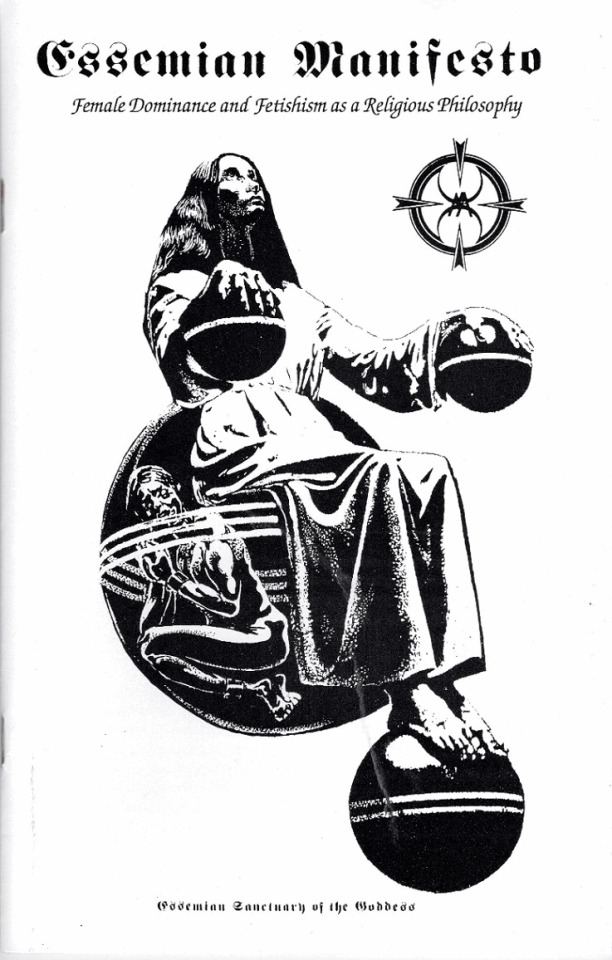
Essemian Manifesto (Female Dominance and Fetishism As a Religious Philosopy) - Essemian Sancturary of the Goddess - 1987
#witches#essemians#occult#vintage#essemian manifesto#essemian#essemian sanctuary of the goddess#female dominance#fetishism#fetishism as a religious philosophy#religion#philosophy#goddess#sanctuary#1987
33 notes
·
View notes
Text
"It shouldn't be like this."
"There isn't a way things should be. There's just what happens, and what we do."
"Well, couldn't you help him by magic?"
"I see to it that he's in no pain, yes," said Miss Level.
"But that's just herbs."
"It's still magic. Knowing things is magical, if other people don't know them."
Terry Pratchett, A Hat Full of Sky
#tiffany aching#miss level#a hat full of sky#discworld#terry pratchett#magic#medicine#witches#life#life philosophy#knowledge#context#idealism#pragmatism#education#the way things should be#the way it is#knowing things is magical
408 notes
·
View notes
Text




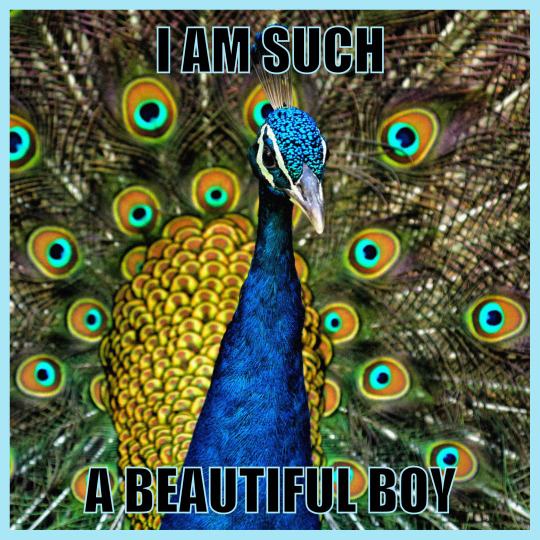
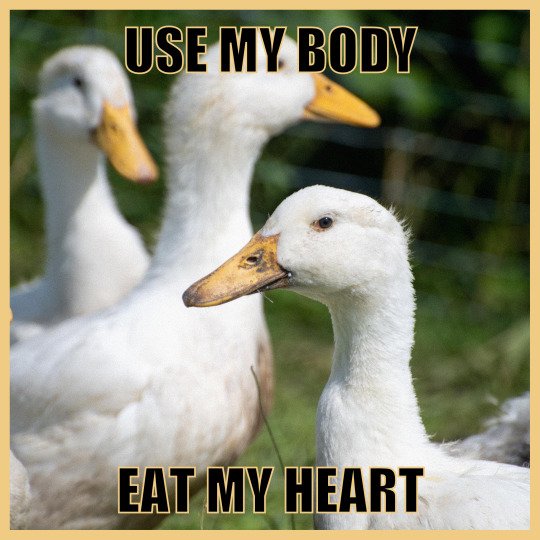
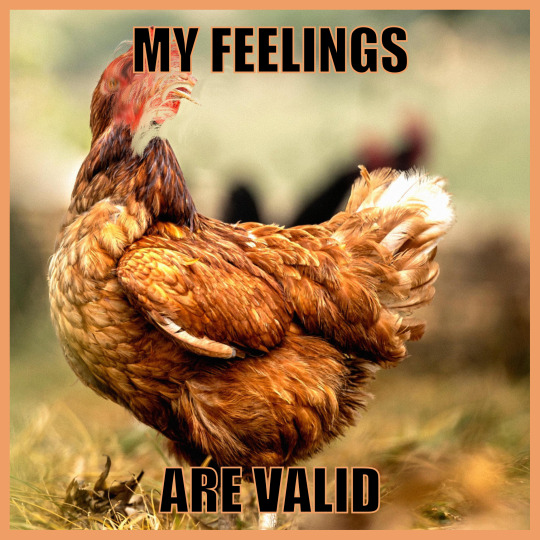


brooding (parasitic)
#affirmations#birds#birdblr#she really had a bird moment#this one goes out to *checks notes* family#roll call#cuckoo#crow#songbird#peacock#duck#chicken#swan#snowbird#slightly less deranged than usual#slightly cultist simulator as i was thinking of the witch-and-sister but also#art#philosophy#saschirmations#saschacant#beware she’s got a psychology btec#just get her out of my drafts
45 notes
·
View notes